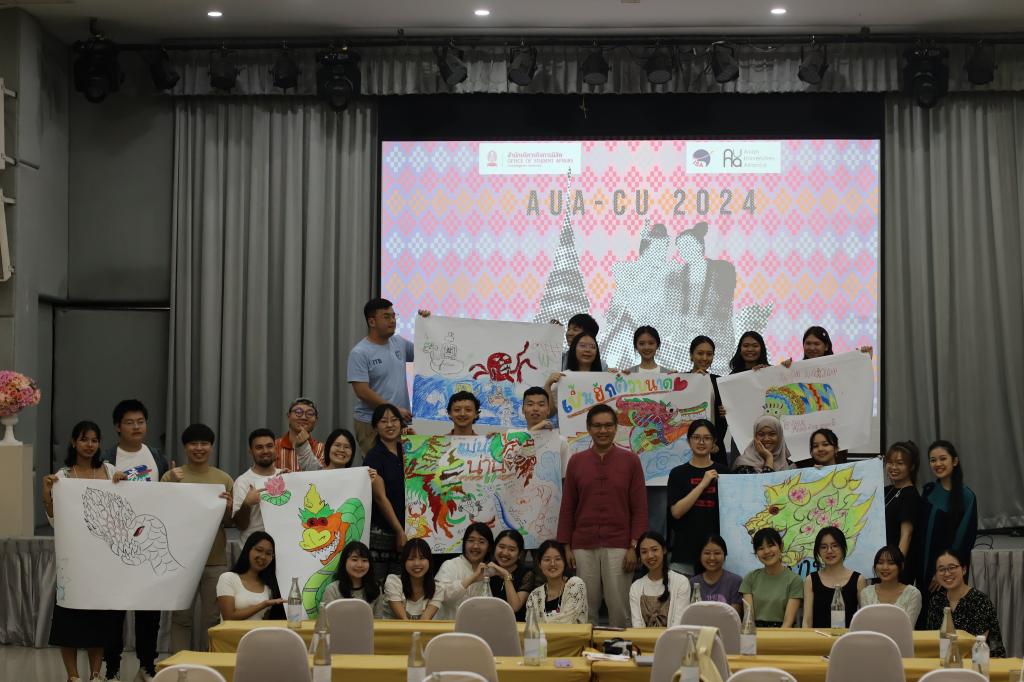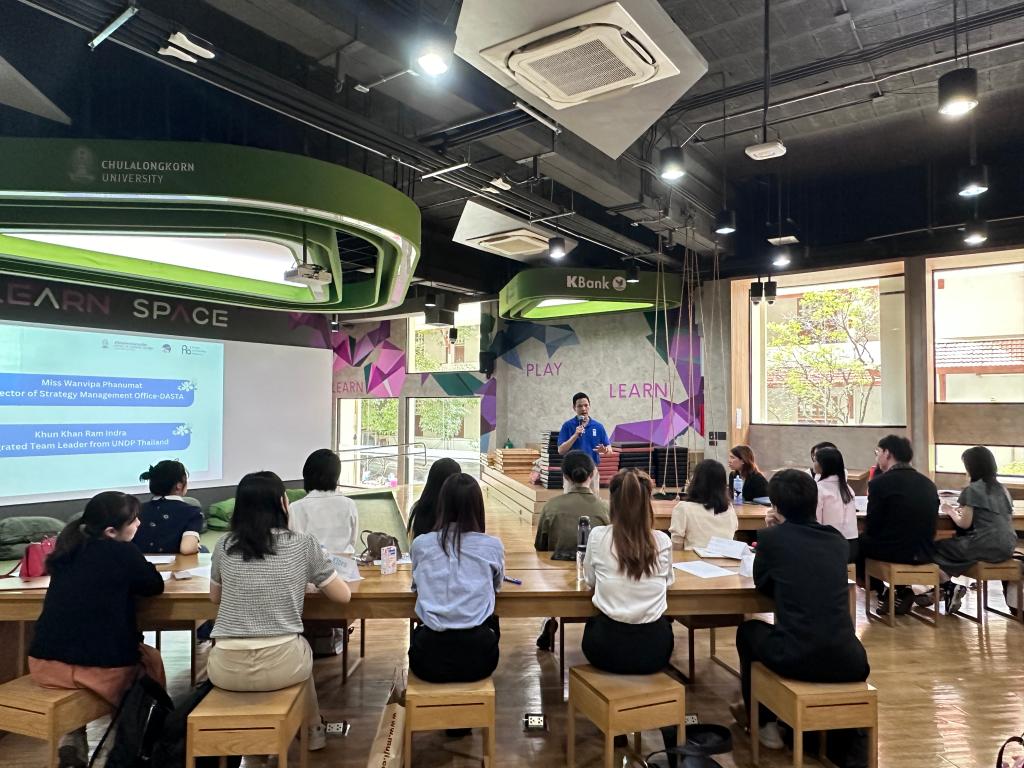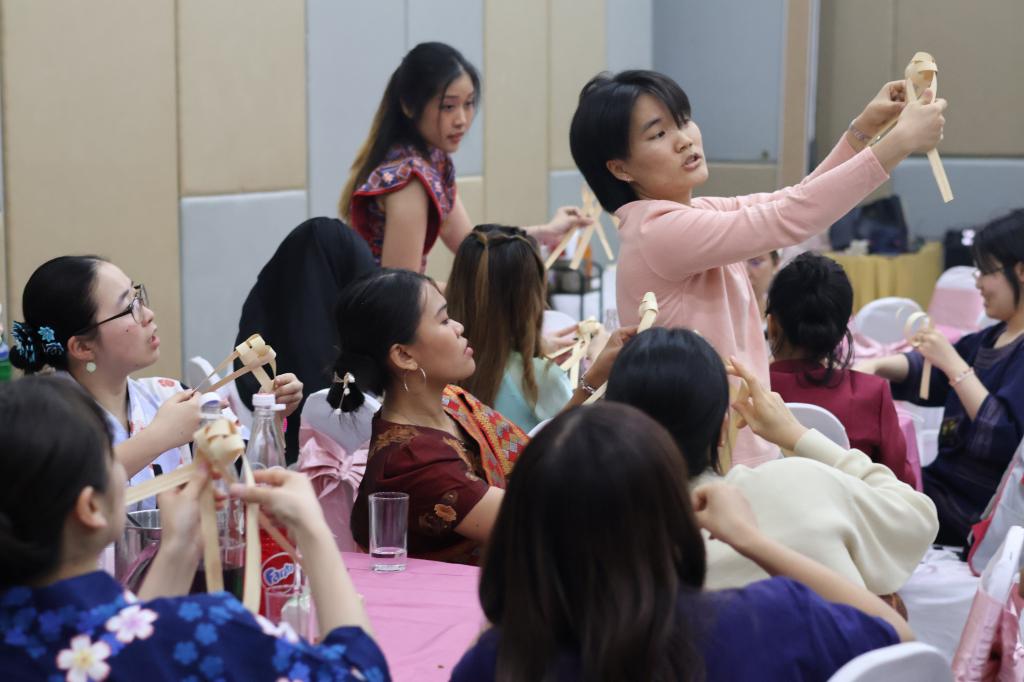The AUA-CU Traditional Thai Culture And SDGS Camp 2024: Eco-Friendly, Sustainable and Cultural Tourism Learning Camp & Practices, hosted by Asian Universities Alliance (AUA) and Chulalongkorn University, concluded its first successful run from March 9 to 15, 2024. The camp, which took place in Nan, Thailand, took students on a vibrant journey through Thailand’s new sustainable agriculture industries, local Lanna culture and eco-tourism strategies.

Upon arrival, camp students first were introduced to basic Thai history & culture, (as well as experienced a traditional Thai children’s game), before they delved deeper into the five local development sectors for the camp’s theme: Government, Agriculture, Local Business, NGOS and Local Community.
A delegate from ESCAP presented “Towards A Carbon Neutral Destination: Innovative Sustainable Tourism Strategies” to the camp, emphasizing on the crucial need to build a more responsible tourism industry in Asia. A local art-endorsed community called Ghom Lanna hosted a craft workshop, teaching the students how to make ‘wind flowers’ (dry bamboo strips woven into flowers), passing down an irreplaceable cultural heritage as well as promoting the use of natural materials.
The Head of the Provincial Office of Natural Resources and Environment, Nan outlined their ‘City For All’ Sustainable Approach to manage agricultural resources, as well as to increase local tourism by supporting Nan’s local Lanna cultural crafts such as sarongs. Next, The Chairman of the Nan Coffee Association further elaborated on sustainable coffee cultivation taking place in Thailand, it’s challenges and accomplishments and the shared-work system of the association.
Next, The Hug Muang Nan Foundation showcased the integration of the local custom ‘forest ordination’ or ‘Sueb Cha-ta’ with conservation efforts in nearby marine ecosystems and forests and it’s support from the local community, youth and Buddhist monks. Continuing on local traditions, The Secretary of Baan Sao Luang Weaving Community also demonstrated Nan weaving crafts that use raw materials, (the income of which goes directly to local communities).
Lastly, The Jintana Coffee Shop elaborated on sustainable energy being put into action through their own business. Corn is the main agricultural product in Nan Province, but is harmful to the topsoil and air pollution, whilst coffee does not use harsh chemicals and protects wildlife. Thus, The ‘Jintana-Coffee Shop For All’ Mission was begun with the motto ‘one cup of coffee helps preserve one tree’ and the goal of promoting alternative agricultural production and reducing the province’s environmental pollution.

These local organizations not only preserve traditional Thai culture and improve the quality of life for Nan residents, but also displayed to the camp students how to apply sustainable development goals into real-world scenarios.
For the next segment of the camp, the students went forth on an extensive Nan City Tour! Guided by local high school students, they experienced the city’s historical past at Nan National Museum, explored Buddhist temples Wat Changkum and Wat Phumin (home of Thailand’s ‘Mona Lisa’) with the monks, and visited the enshrined City Pillars as well as One Tambon Centre, all of which showcases Nan Province’s cultural significance as one of the country’s hidden gems.
The camp ended with a plenary session, aka final group presentations, where all of the students took what they learned and applied it in relation to the camp’s three core themes and then presented them in front of a panel of experts as well as their peers.

The AUA-CU Camp 2024 was an overwhelming success as it accomplished its primary target goals to increase youth engagement in SDG endeavors, showcase the merging of agricultural resource management with local practices & culture and provided invaluable opportunities for AUA member universities to network and dive deeper into their research.
